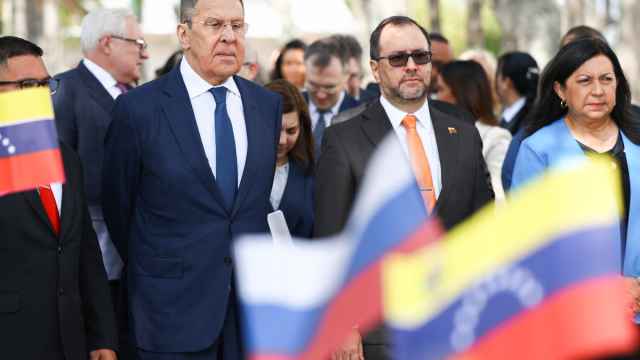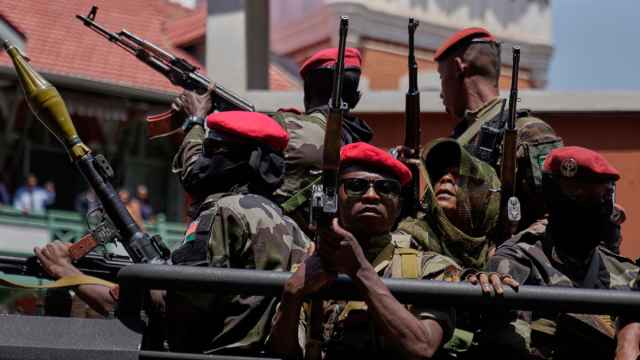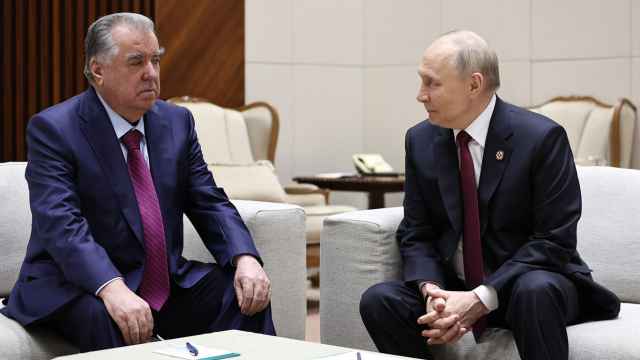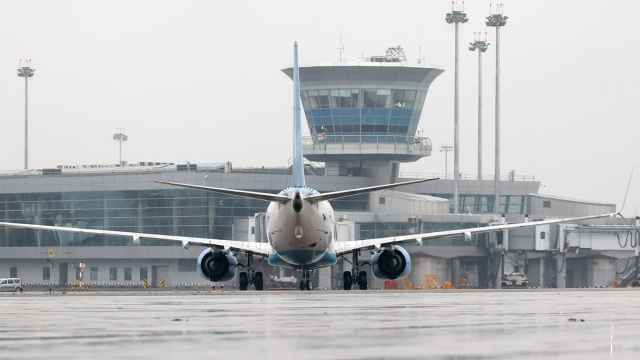The Federation of Independent Trade Unions agreed to defend the rights of striking Turkish workers involved in a construction project near Vladivostok that is part of the preparations for next year's Asia-Pacific Economic Cooperation summit, in a move that signifies the importance of the event for the Russian government.
The federation — the country's largest trade union umbrella organization with 25 million members — will support the claims of workers building a campus of the Far Eastern Federal University, if they join the construction trade union and subsequently create their own organization, federation secretary Alexander Shershukov said Tuesday.
The university campus will be the site of the summit, and its construction is part of the 660 billion rubles ($24 billion) being spent to prepare the region for the event.
The announcement came after about 250 workers from Turkey involved in the construction project on Russky Island in the Sea of Japan went on strike, saying that their employers — businessman Aras Agalarov's Crocus Group and subcontractor Regiontekhstroi — have not paid them, local media reported late last week.
The workers also said they were starving because the employers stopped providing them with lunch, one of the reports said.
A spokeswoman for the local branch of Crocus Group told Interfax on Tuesday that the company had transferred the money to pay workers on time. She also said the company was investigating the case.
The workers' representatives were unavailable for comment Tuesday, but a Vladivostok resident familiar with the situation said they were laboring in extremely difficult conditions.
"There are eight people living in 12-square-meter rooms. No conditions for recreation are provided," said the resident, who didn't want her name in the newspaper.
Residents of local villages in the Primorye region "fled after two weeks" of work at the construction site, she said by telephone.
According to current legislation, trade unions must defend the rights of foreign workers legally employed in Russia, but such cases rarely take place because foreign workers are either often employed illegally or are senior executives at big foreign companies and have enough money to hire a lawyer in case of a conflict, said Sergei Yuryev, a partner at law firm CMS Russia.
"The Federation of Independent Trade Unions has likely turned its attention to the issue because of requests from the mass media to comment," he said.
An immediate reaction from the federation indicates significance of the APEC summit for the Russian government, Yuryev said.
Defending foreign workers' rights has always been an issue for the trade unions, as about 2 million legal workers come to Russia from abroad annually, Shershukov said.
"But in order for his rights to be defended a person should undertake some steps himself, at least join a trade organization," he told The Moscow Times, adding that foreign workers are not active in joining trade unions because protection of their rights tends to be less crucial for them than getting paid.
The regional prosecutor's office, the Federal Security Service and the Federal Migration Service started a check at the construction site, a spokeswoman for the Primorye Regional Prosecutor's Office said.
A Message from The Moscow Times:
Dear readers,
We are facing unprecedented challenges. Russia's Prosecutor General's Office has designated The Moscow Times as an "undesirable" organization, criminalizing our work and putting our staff at risk of prosecution. This follows our earlier unjust labeling as a "foreign agent."
These actions are direct attempts to silence independent journalism in Russia. The authorities claim our work "discredits the decisions of the Russian leadership." We see things differently: we strive to provide accurate, unbiased reporting on Russia.
We, the journalists of The Moscow Times, refuse to be silenced. But to continue our work, we need your help.
Your support, no matter how small, makes a world of difference. If you can, please support us monthly starting from just $2. It's quick to set up, and every contribution makes a significant impact.
By supporting The Moscow Times, you're defending open, independent journalism in the face of repression. Thank you for standing with us.
Remind me later.





